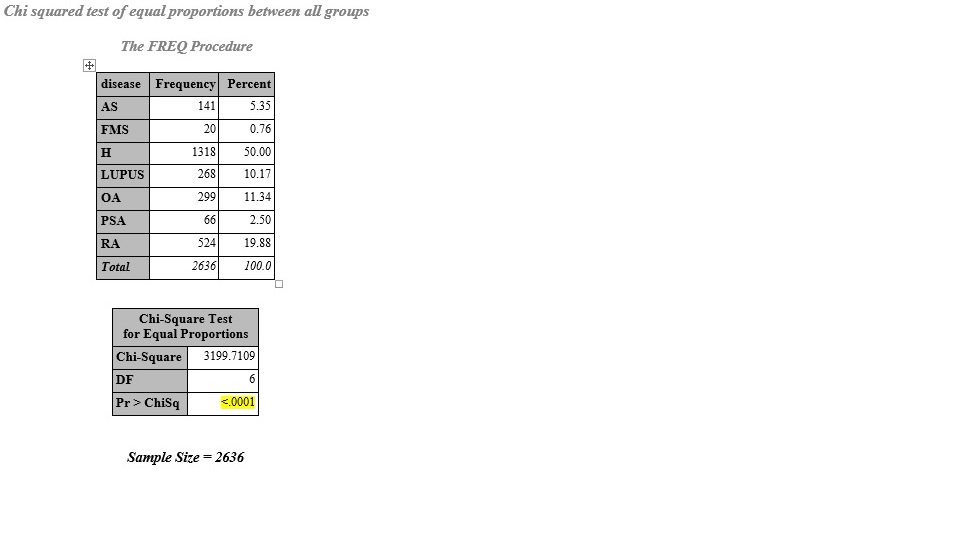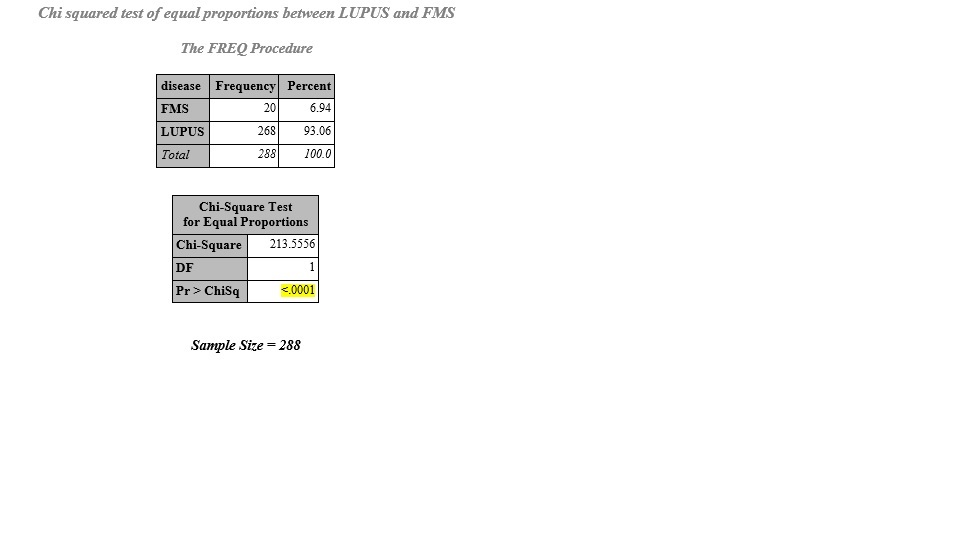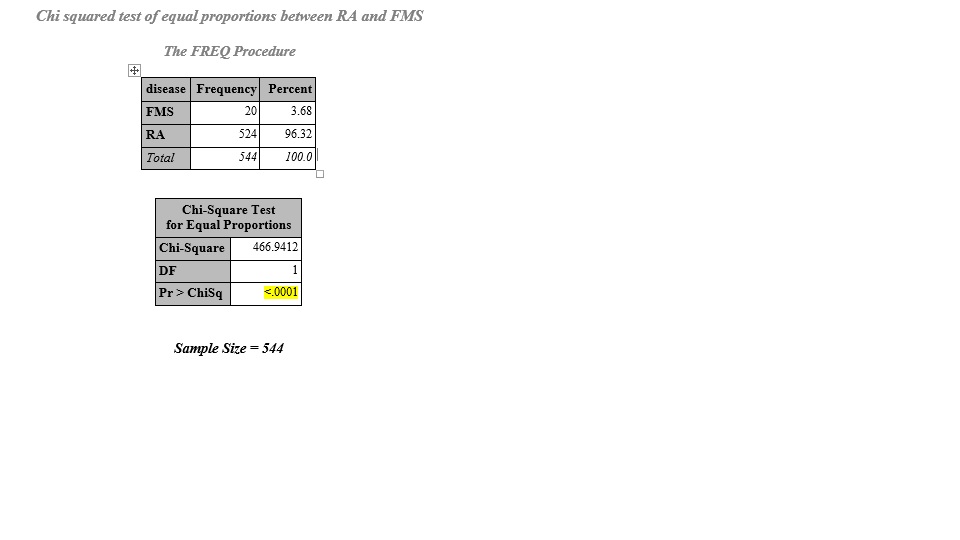Session Information
Session Type: ACR Poster Session A
Session Time: 9:00AM-11:00AM
Background/Purpose:
It is estimated that approximately 5 million people in the United States suffer from Fibromyalgia. That’s compared to 1.3 million adults with rheumatoid arthritis and about 250,000 with systemic lupus.
Methods:
We reviewed six major rheumatology journals over a two-year period to assess the number of articles written regarding rheumatoid arthritis, lupus, osteoarthritis, ankylosing spondylitis, and psoriatic arthritis. The journals reviewed were Arthritis and Rheumatology; The Annals of Rheumatic Disease; The Journal of Clinical Rheumatology; Nature Reviews of Rheumatology; Arthritis Care and Research; and Seminars in Arthritis and Rheumatism.
Results:
We found the number of publications for rheumatoid arthritis, lupus, osteoarthritis, psoriatic arthritis, ankylosing spondylitis, and fibromyalgia as the following:
Conclusion:
Research papers regarding lupus appeared 13 times more often in these six rheumatology journals compared with fibromyalgia articles. Rheumatoid arthritis studies were 26 times more frequently included, compared to articles on fibromyalgia, in these journals.
Publication bias could have critical adverse consequences for the 5 million people in the United States that carry the diagnosis of fibromyalgia.
Journal editors need to carefully consider the origins of this bias, the damaging effects on treatment advances for patients who carry the diagnosis, and ways of ameliorating this situation.
Publication bias limits the amount of literature on fibromyalgia that clinicians can use to synthesize and learn from. It can also distort the importance of the disease entity in the mind of the reader.
Articles on lupus, with a prevalence of less than 300,000, appeared in these rheumatology journals 13 times compared with articles about fibromyalgia, with a prevalence of 5 million. It is likely that manuscripts of fibromyalgia face greater publication hurdles than other rheumatic diseases.
To cite this abstract in AMA style:
Katz RS, Kwan L, Leavitt F. Publication Bias Regarding Scientific Studies about Fibromyalgia [abstract]. Arthritis Rheumatol. 2018; 70 (suppl 9). https://acrabstracts.org/abstract/publication-bias-regarding-scientific-studies-about-fibromyalgia/. Accessed .« Back to 2018 ACR/ARHP Annual Meeting
ACR Meeting Abstracts - https://acrabstracts.org/abstract/publication-bias-regarding-scientific-studies-about-fibromyalgia/



